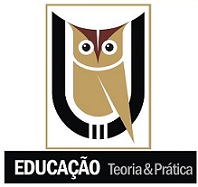DIDACTICS AND RESEARCH IN THE CURRICULUM OF THE UNDERGRADUATE COURSE OF PEDAGOGY AND TEACHER'S HABITUS IN BOURDIEU
DOI:
https://doi.org/10.18675/1981-8106.vol28.n57.p93-110Keywords:
Formação docente. Pesquisa e Didática. Currículo.Abstract
Teacher training for the initial years of Elementary School has as one of its functions the preparation of these professionals for the development of an interdisciplinary practice, within the reach of the curricular requirements that pervade their practice. The main goal of this research is to discuss the place of didactics and research in the formation curriculum of this professional, specifically in the undergraduate course of pedagogy. Therefore, the documental research method was used based on a qualitative approach, applying the following documents: “matrizes curriculares e projetos pedagógicos de (7) cursos de Pedagogia presenciais de uma universidade multi campi do Estado do Ceará”. Our conception is supported on the studies made by Bourdieu, focused on the methodology of praxeological knowledge. The analysis of those documents shows us the need to understand the training process related to habitus, in which knowledge of the pedagogical and scientific fields, that is, didactic and research knowledge, are articulated in order to strengthen scientific and curriculum formation; as well as to obtain a greater coordination between the theoretical and the practical dimensions in the undergraduate course. Keywords: Teacher Training. Research and Didactic. Curriculum.Published
How to Cite
Issue
Section
License
Authors who publish in this journal agree to the following terms:
a) Authors assign copyright to the journal, with the work simultaneously licensed under the Creative Commons Attribution License that allows sharing of the work with acknowledgment of authorship and publication in this journal.
b) The policy adopted by the Editorial Committee is to assign copyright only after a period of 30 months from the date of publication of the article. After this time, authors interested in publishing the same text in another work must send a letter to the Editorial Committee requesting the release of the assignment of copyright and wait for a response.
c) This journal provides public access to all its content, since this allows greater visibility and reach of published articles and reviews. For more information on this approach, visit the Public Knowledge Project, a project that developed this system to improve the academic and public quality of research, by distributing OJS as well as other software to support the public access publication system to academic sources. The names and email addresses on this website will be used exclusively for the purposes of the journal and will not be available for other purposes. This journal provides open any other party  This work is licensed under a Creative Commons License
This work is licensed under a Creative Commons License











